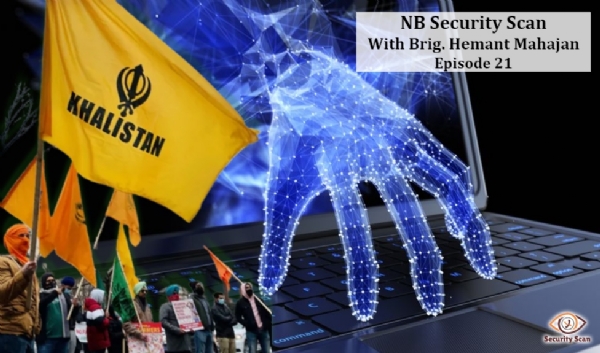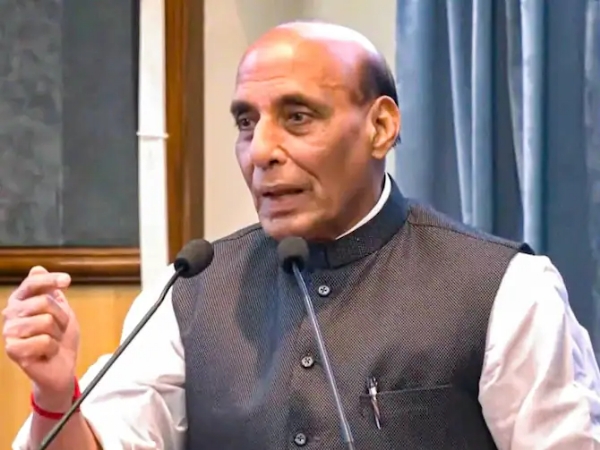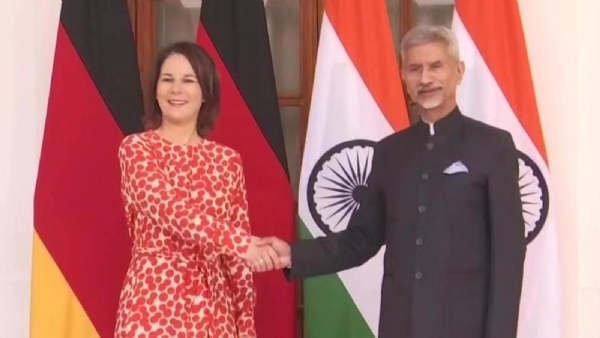#SecurityScan 21: Security in Punjab, Taliban rule, Chinese social media and more
Recent seizures by security agencies in Punjab indicate that stocks meant for sale in the state are being clandestinely transported to Uttar Pradesh, Haryana and Rajasthan as well as Bihar and Gujarat, the two states which have imposed prohibition.
Total Views |
This article is a summary of important events that have taken place in the last one week affecting India's national security.

INTERNAL SECURITY
Security Of Punjab Citizens
The domestic and commercial production of spurious liquor in Punjab has come under intense scrutiny of the Supreme Court. This should spur a more concerted, institutionalized strategy to tackle the problem. Punjab has claimed that over 36,000 FIRs have been registered in the past two years and hundreds of illegal liquor dens destroyed. The numbers suggest a lack of periodic inspection and supervision by the police and excise officials. The youth will be finished, because of burgeoning illicit liquor trade and drug menace.
While drug abuse is widely recognised as a menace, alcohol dependence in the state is no less a problem. The illicit trade has grown in tandem with a boom in demand. In 2020, amid the raging pandemic, 123 people died after consuming spurious liquor that contained denatured spirits, often used to make paint. Levying fines for carrying out illicit activities, including on licensed manufacturers, cannot be a solution in itself. The progress in investigating cases and filing of charge sheets is very slow. The government has been asked to disclose how the penalty recovered could be utilized for raising awareness or increasing the manpower to monitor the illegal activity.
Accountability of the official workforce has to be fixed, quality control assured, licenses of violating distillers canceled. Liquor smuggling from Punjab is emerging as another major concern. Recent seizures indicate that stocks meant for sale in the state are being clandestinely transported to Uttar Pradesh, Haryana and Rajasthan as well as Bihar and Gujarat, the two states which have imposed prohibition. The tentacles of corruption are spread far and wide. All out war against liquor, just like drugs is called for.
Khalistani Terrorism In Australia
Perturbed over the profusion of Khalistani flags at an event for the Indian community in Melbourne, India has sounded out to Australia about the growth of Sikh separatism in Australia.The move comes ahead of Prime Minister Narendra Modi’s visit to Australia to attend the Quad national leaders’ meeting.The event of November 19 in Melbourne was backed by the state government and organized under the banner of the Victorian Sikh Gurdwara Council.
Khalistani extremism has to be tackled head on in Australia ,Canada and England.
Government pumps in more investment for all-round development in northeastern region
While Arunachal Pradesh has been allotted Rs 44,000 crore - the highest among the northeastern states, Assam has been sanctioned projects worth Rs 38,000 crore, Meghalaya Rs 12,500 crore, Manipur Rs 15,499 crore, Mizoram Rs 6,664 crore, Sikkim Rs 2,000 crore, Tripura Rs 12,426 crore, and Nagaland Rs 3,235 crores.

India's Defence Minister Rajnath Singh on Wednesday stated that Government accelerated development initiatives in North East has lead to all-round development in the northeast region, enabling all the states to improve trade with South East Asian Nations. The Pradhan Mantri Gati Shakti Master Plan would act as a force multiplier in developing infrastructural facilities in the northeast region. "Whether it is road construction, expansion of railways or improvement of waterways, through Pradhan Mantri Gati Shakti, we are committed to strengthening the pace of development. We have ensured the progress in Solar and Hydel Projects, and have provided electricity in every nook and corner." Expanding the IT and telecom facilities to every nook and corner of the northeastern states is on. "Due to the hardworking nature of the young generation of North East, and the facilities given by the government for Ease of Doing Business, the North East region is moving towards a golden future.
In Arunachal Pradesh, the two-laning of a 1,465-kilometer stretch on the Frontier Highway will be undertaken by the Ministry of Road Transport and Highways (MoRTH) at an estimated cost of Rs 27,349 crore. This project will pass through East Kameng and West Kameng districts, Upper Subansiri, Upper Siang, Dibang Valley, Lohit, Anjaw, and Changlang.
The Frontier Highway will safeguard the Indo-China-Myanmar border and control migration from border areas while improving the tourism infrastructure in the state.
Stopping Terror Money supply
INDIA’S efforts to build global momentum against terror funding are striking a chord with other nations in the region. The India-Central Asia meeting of National Security Advisers (NSAs) ended on Tuesday with a joint statement calling for collective action to deal with the use of proxies for cross-border terrorism, terror financing and radicalisation. NSA Ajit Doval termed financial support the ‘lifeblood’ of terrorism. His opinion was endorsed by the representatives of Kazakhstan, Kyrgyz Republic, Tajikistan, Uzbekistan and Turkmenistan.
India and the Central Asian countries were also unanimous in their view that Afghanistan must not be allowed to become a safe haven for terror groups.There is no doubt that unrest in Afghanistan, which has been under the Taliban’s chaotic rule since August last year, threatens the security and stability of the entire region.
With India set to resume work on stalled projects in Afghanistan, the Taliban should be made to see through Pakistan’s designs and crack down on cross-border terrorism. As the G20 president, India should optimally utilise this multilateral platform to up the ante against nations aiding and abetting terrorism.
EXTERNAL SECURITY
Watch In Afghanistan
When Kabul fell to the Taliban last year, India faced a difficult choice. In the aftermath of an earthquake in Afghanistan earlier this year, India quietly moved to establish a small diplomatic presence in the restive country while continuing to help its citizens with humanitarian efforts. This cautious strategy is yielding dividends and allowing India to gain a toehold in what remains a restive and volatile, but strategically important, country.

Indian presence on the ground in Afghanistan would be helping India to keep a close watch on the evolving political and security situation.
Strong India Israel Relations
Intervention by Israel’s Ambassador to India Naor Gilon in the controversy triggered by his compatriot Nadav Lapid, who was the head of the International Competition Jury at the 53rd International Film Festival of India, has once again underscored the exceptionalism in India-Israel relations.
It is inconceivable that any western ambassador in New Delhi would apologize for anything their citizen said in exercise of his freedom of speech as Lapid did about the film, The Kashmir Files.
Another example of Israeli exceptionalism in engaging India was the former’s wide-ranging outreach to Indian states. Israel has plunged into dialogues and actions in state capitals, tempting Chief Ministers with Israel’s strengths in irrigation, startups and state-of-the-art technology. The controversy over The Kashmir Files will, therefore, pass with or without Gilon’s intervention. India-Israel relations have become multifaceted and strong enough to withstand storms in teacups.
Intense Productive engagement: On India-Germany ties
German Foreign Minister Annalena Baerbock’s visit to India and talks with External Affairs Minister S. Jaishankar have set the stage for a more updated bilateral relationship. The two sides signed an agreement on mobility and migration that boosts travel for students, researchers and investors and businesses, and the meeting was preceded by Germany’s agreement to fund renewable energy projects worth a billion Euros. The year 2022 has seen intense high-level engagement, as Prime Minister Narendra Modi made two visits to Germany — for the India-Germany Inter-Governmental Consultations with Chancellor Olaf Scholz in Berlin and the G-7 outreach summit in Bavaria. The leaders also met at the G-20 summit in Bali. In 2023, Mr. Scholz is expected to be in Delhi, in spring, and again in September 23 for the G-20 summit in India.
Ms. Baerbock also walked back previous controversial comments calling for the “United Nations track” to resolve the Kashmir dispute; She now believes Kashmir is a “bilateral dispute” to be resolved between India and Pakistan only.

The substance of the relationship will be tested in continuing differences over the war in Ukraine. Mr. Jaishankar’s line to journalists was that India’s imports of Russian oil, a national interest necessity, remain a fraction of the fossil fuels Europe continues to buy. While this may be correct, it is also true that falling fuel imports are likely to drop further once the December 5 launch of the “oil price cap” for seaborne imports kicks in. On the other hand, India’s imports of Russian oil have soared to a whopping 21-fold increase, making Russia India’s biggest supplier.
It will be necessary to work more closely with Germany to bring all western partners on board with Mr. Modi’s plans to forge “global unity”, without letting the deep divisions with Russia derail consensus on important tasks such as fighting climate change, inequality, poverty and the digital divide.
COUNTERING CHINESE MULTI DOMAIN WAR
Cyber Security-Stopping Cyber Attacks
The cyber attack on the servers at All India Institute of Medical Sciences (AIIMS) is a serious jolt and a wake-up call. One of the most high-profile cases of data breach targeting a government-backed entity has exposed the vulnerabilities. That the hack originated from China should lend urgency to developing robust safety.
A review of processes, infrastructure and the responses to potential cyber attacks at all government establishments should follow. Scaling it up for mandatory safety audits of critical public data platforms should be done. Priority investment in security preparedness measures across organizations and systems is required.
Understanding the motive behind the AIIMS cyber attack is crucial.India has to develop sound defences. Hackers and criminal syndicates have been targeting large volumes of patient data.
We need to carry out surgical strike against China in the cyber domain.
Counter Chinese Surveillance Capability In Indo Pacific
China has the largest navy in the world with 355 ships and submarines, according to a recent report of the Pentagon. Having established its first overseas military base at Djibouti (Africa) in 2017, China is looking to set up a base in Cambodia in the Indo-Pacific. It is also zeroing in on other countries in Asia and Africa as locations for military logistics facilities.
Chinese spy vessel Yuan Wang 5 has re-entered the Indian Ocean Region, months after it docked at the Chinese-owned port of Hambantota in Sri Lanka despite India’s objections. The ‘research ship’ is capable of tracking satellites and intercontinental ballistic missiles. PLA owns and operates about half of the world’s intelligence, surveillance and reconnaissance (ISR) systems, which allow it to monitor potential regional flashpoints such as Taiwan, the Indian Ocean and the South China Sea.
Closer maritime cooperation with the US and its allies is a must for India for keeping watch on China.
XI jinping uses technology and social media to crush uprising against his lockdown policies
Complete lockdown has been implemented in many areas of China ,due to the outbreak of Corona . There are massive protests going on across the country regarding zero Covid policy. People are taking to the streets and protesting against the current Chinese government. They are also demanding the resignation of Chinese President Xi Jinping.
In 1987, the Tiananmen Square protests began, and martial law was imposed in Beijing in May. On June 3 and 4, troops began advancing toward Tiananmen Square, by shooting, crushing and arresting protesters. 10,000 civilians and a few dozen security guards were killed
But in the present uprising against the CCP, the Chinese government has used high end Technology and social media to crush the uprising. Few important methods being used are given in the succeeding paras:-
China has built a vast civilian surveillance network that tracks every single one of its 1.4 billion citizens - from facial recognition to name and shame jaywalkers, to forcing people to download apps that can access all the photos on their smartphones.
Most of the technologies currently available in China are being used in the system. Tech companies in China are required to share data with the government upon request which helps China to predict protests spots and protesters .
Using facial recognition technology to pick suspicious people out of crowds

At least 16 cities, municipalities, and provinces across China using a facial recognition system that can scan the country's entire 1.4 billion population ,with 99.8% accuracy. Suspicious people involved in protests,who post anti-government posts ,criminals can be identified and arrested.
Getting group chat administrators to spy on chat groups
China holds people criminally liable for content posted in any group chat they initiate on messaging apps. The regulation applies even to private and encrypted apps, such as Whats App.The government also requires tech companies to monitor and keep records of conversations for six months, and report any illegal activity to authorities.
Forcing citizens to download apps that allow the government to monitor their cell phone photos, videos
Nobody can escape the dragnet.
Police wear special glasses to identify people in crowded places, like streets, train stations
The facial recognition glasses, are linked to a database that can match people with criminal suspects data.
LL Vision Technology has developed the glasses, this technology can identify faces from a database of 10,000 in 0.1 seconds.
Installing 'robot police' in train stations that scan people's faces and match those of wanted suspicious people
Many such suspects have been caught
Using facial recognition technology to root out jaywalkers, on lookers
When any violence or protests take place there are many onlookers or jay walkers who collect at the spot to watch the scene. This swells the crowd unnecessarily.
Several Chinese cities have already installed facial recognition cameras around their streets that immediately match jaywalkers' faces to a central police database.The jaywalkers' photos, surnames, and redacted ID numbers are displayed on a massive screen next to the road to warn them to stay away.
Stopping pedestrians at random to check their phones
Armed police and paramilitary forces stop random pedestrians to check their phones and laptops for banned apps and messages deemed dangerous to the Chinese Communist Party.This method of searching has already led to multiple suspects being detained and arrested.
Tracking people's social media posts, which can be linked to the user's family and location
Catching suspects becomes very easy.
Predictive software to aggregate data about people —and flag those they consider threatening
The software gathers the data from CCTV cameras, ID checks, and "wifi sniffers" — tools that intercept wireless networks, and hoover up and decode the data transmitted through them.
The central system, also known as the "Integrated Joint Operations Platform" (IJOP), then analyzes people's profiles, predicts whether they could harm the Chinese Communist regime, and alerts local authorities to potential rebels.
This effectively allows Chinese authorities to arbitrarily detain people they see as political dissidents.
The Chinese government appears ready to go to any lengths to quell the country's biggest protests in 33 years.
Chinese methods of controlling its citizens are cruel and are a complete human rights violation and should be brought to the notice of the UNHRC.
--



